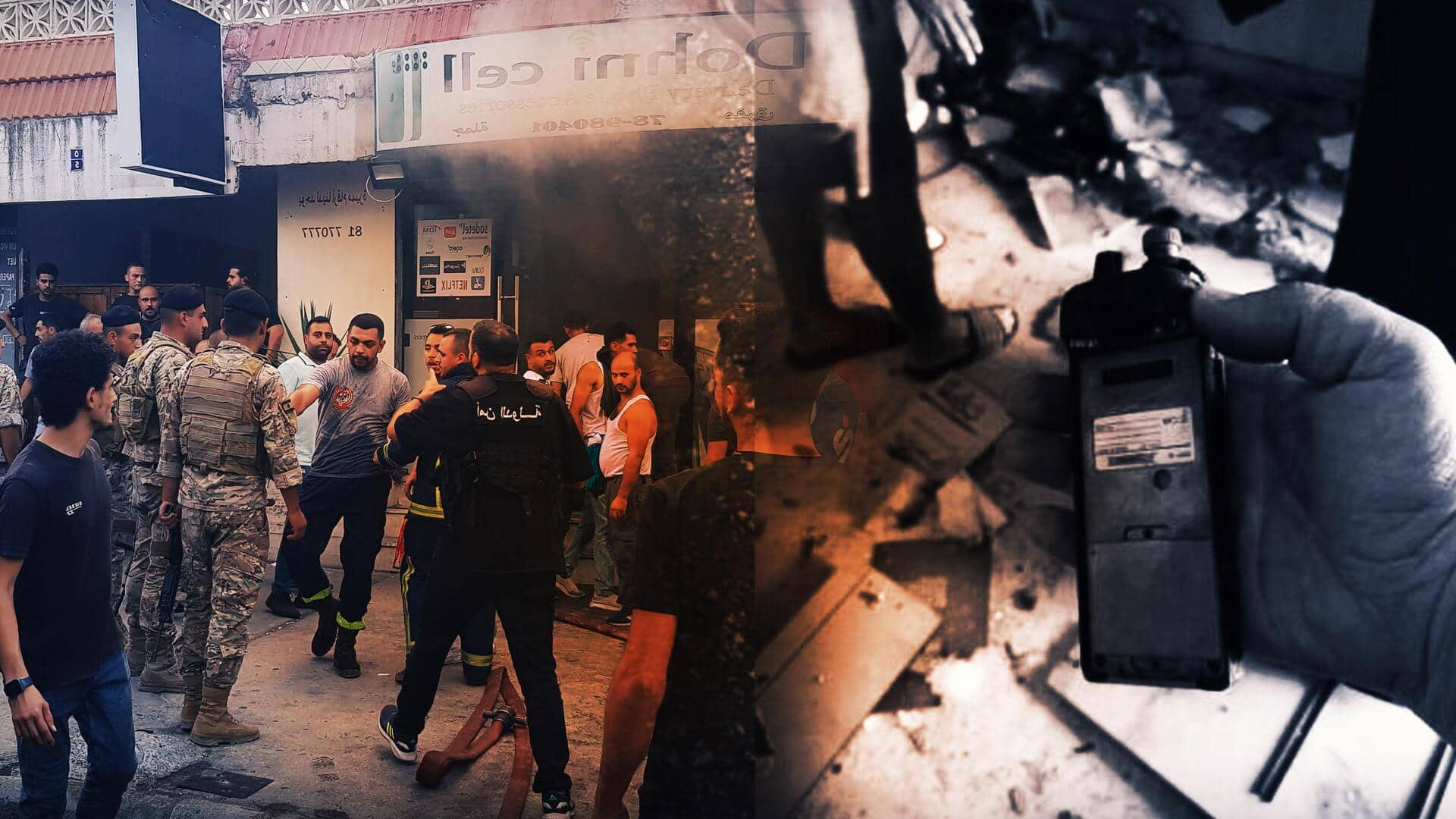
How Lebanon blasts, Hamas chief's killing escalated Middle East tensions
What's the story
After a series of pager-walkie-talkie explosions in Lebanon earlier this week, Israeli Defense Minister Yoav Gallant said, "We are at the onset of a new phase in this war...we need to adapt."
This development could escalate the conflict across multiple fronts, involving Lebanon, Iran, Yemen, and the wider region, as the Israel-Gaza conflict approaches its one-year mark.
Despite fluctuations in the intensity of hostilities, there are no indications of a pause since Hamas's attack on October 7, 2023.
Ongoing strife
Unrelenting hostilities mark 1-year anniversary of Israel-Gaza conflict
The conflict's epicenter is now shifting toward northern Israel, which borders southern Lebanon.
Southern Lebanon is a stronghold of the Hezbollah terror group, which has been engaging in daily exchanges of fire with Israel since the start of the Gaza war.
Beirut has been struck three times since October 8.
Military action
Israeli warplanes target Hezbollah sites amid rising tensions
On Thursday, Israeli warplanes destroyed 100 rocket launchers in a targeted operation against Hezbollah sites. Cross-border strikes were also reported near the border.
Israel has already started diverting its forces and resources towards the Lebanon border after multiple explosions of pagers and walkie-talkies of Hezbollah members killed over 30 and left nearly 3,000 injured.
Rising tensions
Lebanon condemns attacks as Hezbollah threatens retaliation
The pager and walkie-talkie blasts, believed to be a supply chain attack by Israel's spy agency Mossad, have escalated tensions with Lebanon.
Lebanon has described these attacks as a "serious violation of Lebanese sovereignty."
In response, Hezbollah has threatened a "just punishment" for Israel and has already initiated rocket attacks on Israeli artillery positions.
These developments follow months of targeted assassinations by Israel against senior Hezbollah leaders, including the group's top commander, Fuad Shukr.
Regional dynamics
Hezbollah's formidable presence and rising threats from Iran
Hezbollah, considered Iran's most powerful proxy in the Middle East, is not expected to be easily subdued.
The group boasts a vast weapons arsenal and has used drones to fire missiles deep into Israeli territory.
Concerns are also growing over the possibility of an open conflict between Israel and its long-standing adversary, Iran.
This follows Iran's first direct attack on Israel in April and its vow for revenge after the pager blasts in Lebanon critically injured its envoy.
Diplomatic tensions
Assassination of Hamas leader fuels Iran's anger toward Israel
The assassination of Hamas's political wing chief Ismail Haniyeh in Tehran, allegedly by Israel, has further fueled Iran's anger.
This incident was not only a significant blow to Hamas but also a major embarrassment for Iran as Haniyeh was in Tehran for the inauguration of the new Iranian President.
While Iran has yet to retaliate due to significant diplomatic pressure to avoid civilian casualties, experts suggest it is still deciding on the scale and scope of its response.
Defense strategy
Israel's military might and defensive measures against Iran
Despite the rising tensions, Iran is well aware of Israel's military prowess.
In April, following an Israeli attack on the Iranian embassy compound in Syria, Tehran launched a barrage of explosive-laden drones, cruise missiles, and ballistic missiles toward Israel.
However, with assistance from the United States and other Arab nations, many of these projectiles were intercepted.
Israel's Iron Dome air defense system has been instrumental in warding off threats from Tehran and Iran-backed proxies.